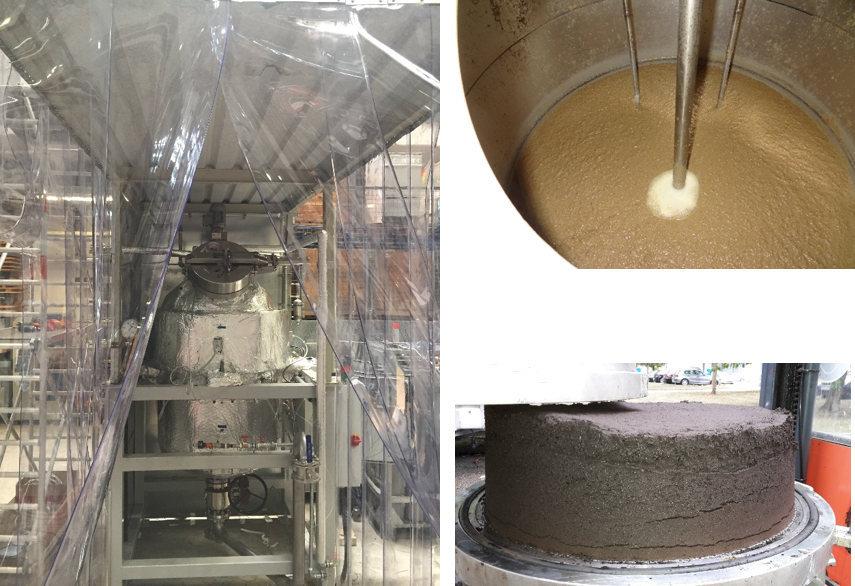Hector
HydrothErmal CarbonizaTiOn Reactor
Due to the depletion of fossil fuels there is a growing demand for renewable biomass-based carbon sources. To avoid competition with food production, the use of agricultural-/agro-industrial residues and other biomass waste-streams is desired for a sustainable production of biomass fuels. However the direct energy exploitation of those biomass sources is strongly limited due to their typical low energy content, high moisture, seasonal availability and their tendency to rot. Furthermore, they often contain elements that lead to higher corrosion and fouling rates i.e. in combustion processes. Pre-treatment methods aim at ameliorating these problematic properties to make these biomass sources accessible for an energetic exploitation.
Hydrothermal Carbonization (HTC) is a thermochemical pre-treatment technology for the transformation of lignocellulosic biomass. HTC can be defined as combined dehydration and decarboxylation of a fuel to raise its carbon content with the aim of achieving a higher calorific value. It is realized by applying elevated temperatures (180–220°C) to biomass in a suspension with water under saturated pressure for several hours. With this conversion process, a lignite-like, easy to handle fuel with well-defined properties can be created from biomass residues, even with high moisture content. Thus it may contribute to a wider application of biomass for energetic purposes.
With TUM pilot-scale HTC Reactor HECTOR (HydrothErmal CarbonizaTiOn Reactor) an investigation of the transferability of lab-scale results to larger scales is possible. Additionally fuels for the in-house combustion and gasification test rigs is produced.
Facts:
- Temperature: up to 250 °C
- Pressure: up to 50 bar
- Volume: 950 L
- HTC biomass yield per batch (d.b.): ~50 kg
